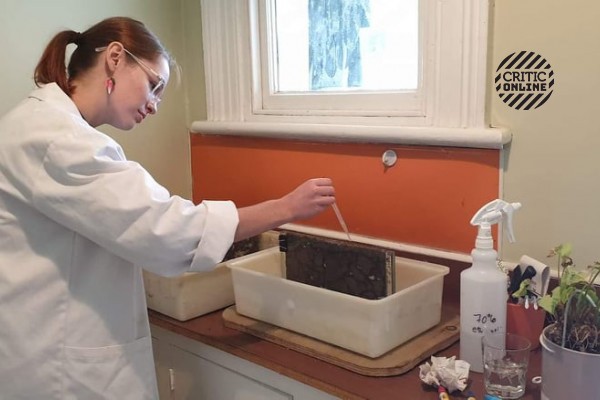The transition to online classes has been difficult for many students. But what if your studies required access to labs and materials that you can’t recreate from home? What if, say, your research included looking after live creatures? Critic spoke to Eloise Lancaster, an ecology Masters student, about how she gained literally thousands of flatmates over lockdown.
Eloise is studying the Southern Ant, one of the most abundant ant species in New Zealand. Just before quarantine began, Eloise had collected the colonies and brought them back to the Zoology Department to observe. Rather than part ways with her new friends once the lockdown was announced, her supervisor suggested bringing some of them home. So she did.
She said that recruiting her flatmate and heading down to the department to grab her boys felt “very heist-like”. Apparently they weren’t the only ones with the same idea, either - during their escapade they met a fellow soldier: “I recognized one of the PhD students from my lab group as he loaded up his car with cartons of grasshoppers.” For the students unable to smuggle their animals home, University employees have taken over their care.
At home, Eloise has created her own “lab” near the backdoor. Her flatmates were happy to help home the ants, and only slightly regretted that support when they found out they were a flying variety. “It’s like [the flat] have quarantine pets,” she said. She also said her parents were significantly happier about her staying in Dunedin once she told them about her plan.
Since their rescue, the challenge now is to keep them alive during a global pandemic. Eloise has gone full hunter-gatherer mode, foraging for food in the absence of their usual preferred snack, mealworms. “Ant broods require protein to grow, so I’ve been digging up dirt to find worms, trying to make traps for flies, scraping aphids off plants and now literally feeding them wet cat food.”
With support from her lab group and supervisor, Eloise has been able to continue her observations and start thinking about research. “I’ve been tracking their tunnels, the position of their brood, and taken lots of photos for analysis.” It is a luxury a lot of other science postgrads have not received during the lockdown period. She said “It’s been an interesting experience, but as far as postgrad student woes go, I’m one of the lucky ones.”



